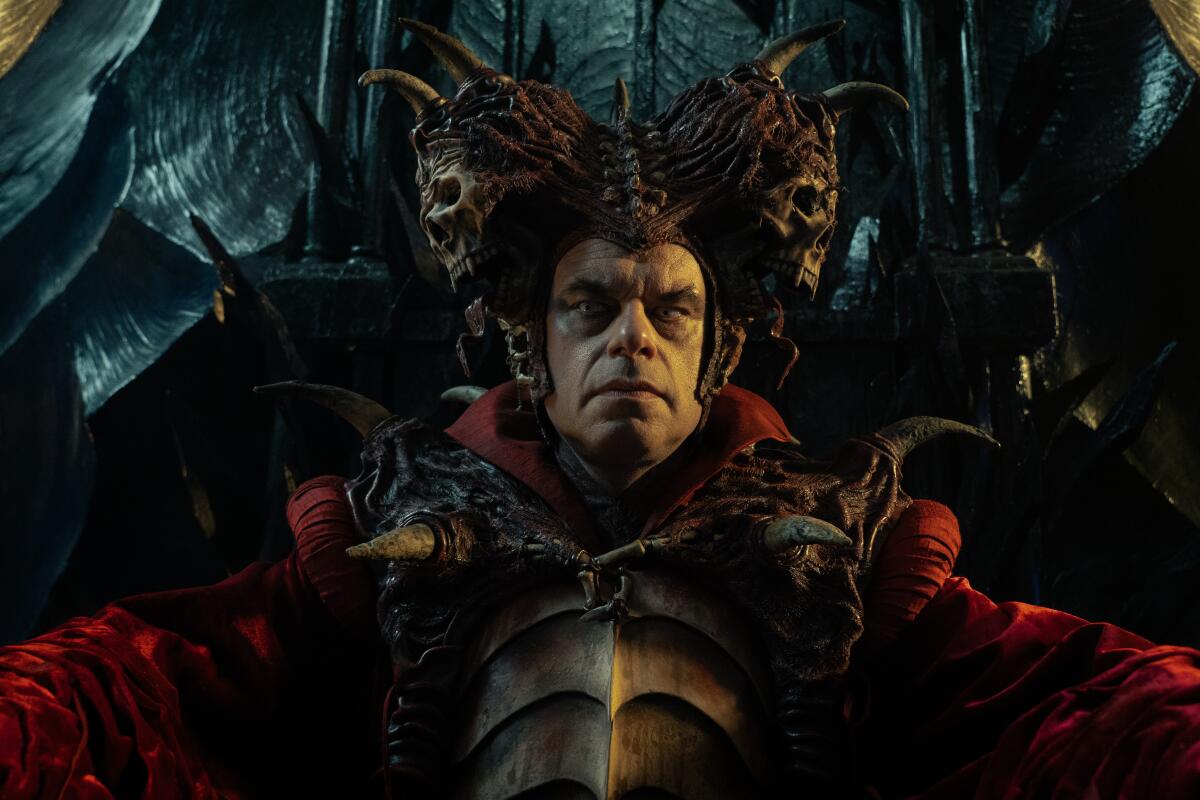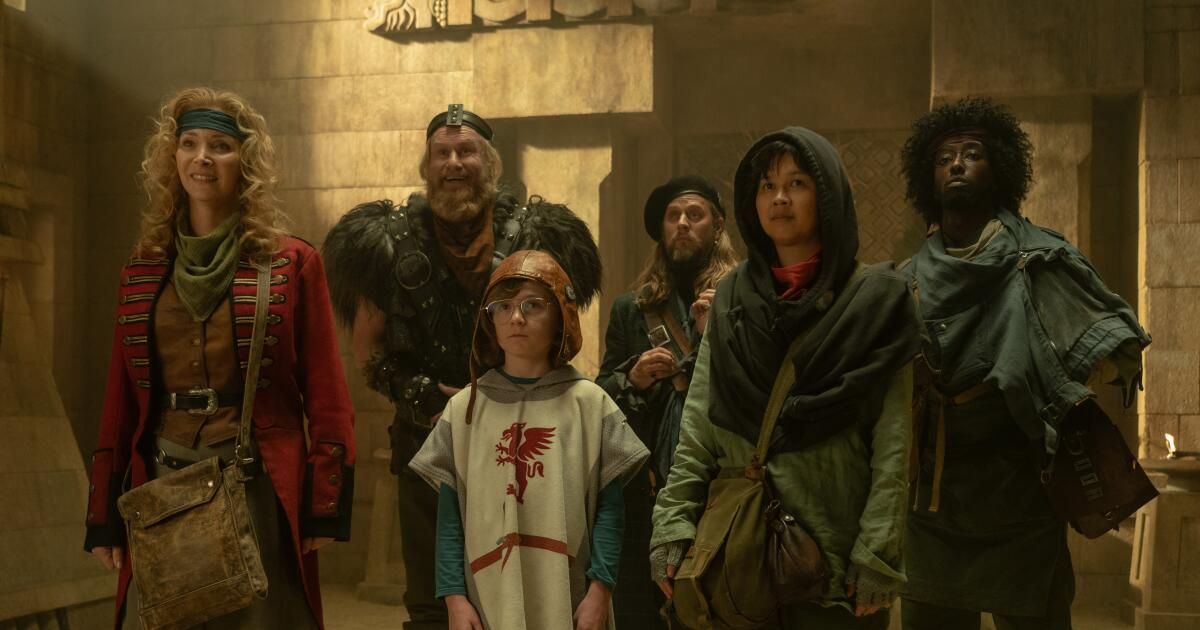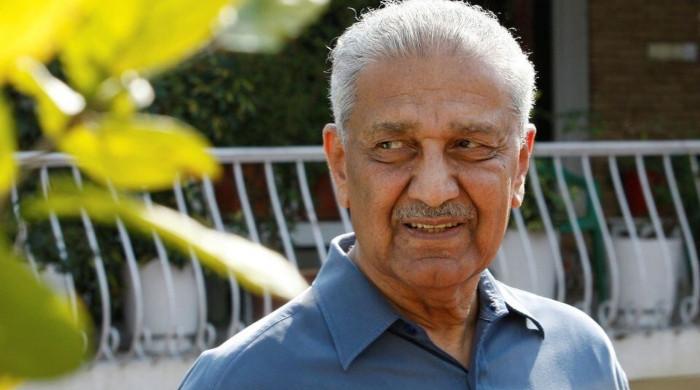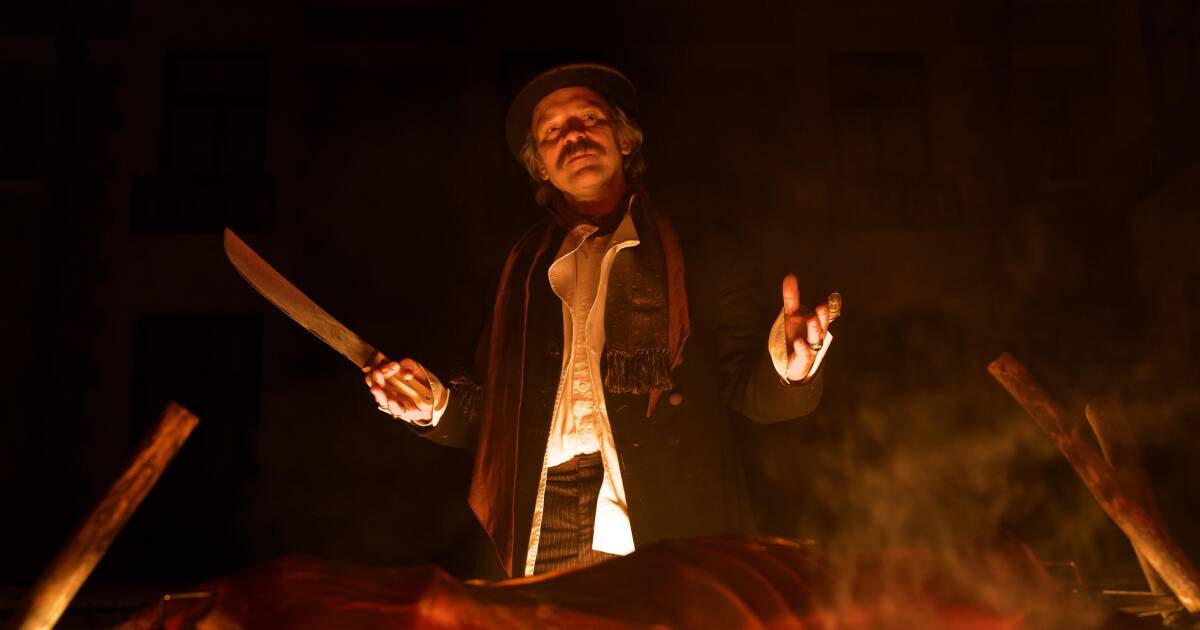“Time Bandits,” premiering Wednesday on Apple TV+, takes the premise and details of Terry Gilliam’s wonderful 1981 fantasy-comedy adventure and expands it, without breaking it, into a TV series. Created by Jemaine Clement, Taika Waititi and Iain Morris, it’s feel-good, lively, funny and entertaining.
Anyway, it's best not to think about Gilliam's film, or at least not to pay attention to the differences. There are some direct borrowings and a similar kind of humor, but where the film is unsentimental, violent and grotesque (in a good way, I mean), the series is sentimental, not so violent and grotesque only when it comes to real monsters. In particular, the bandits, who were played by little people in the film, led by the great David Rappaport and including Kenny Baker, the man inside R2-D2, are here full-sized actors. (There are little people in other roles, which seem to be prepared for a second season plot.)
As before, the central character is a little English boy named Kevin (Kal-El Tuck), whose room, unbeknownst to him, turns out to be a portal through time and space. (Both Kevin and his room, the series suggests, are important in a special way.) Kevin is an exuberant nerd whose impulsive history lectures his parents, glued to their screens, find boring; his sister, Saffron (Kiera Thompson), a new character, finds him ridiculous, pathetic and a little repulsive, as siblings can do. She will play a major role in later episodes.
One night, a cupboard in Kevin’s bedroom begins to shake and emit light, and when he opens the door he finds himself on a distant beach, in a distant time, where a Viking is being pursued by Saxons. Nothing quite as dramatic as the knight on horseback who bursts into his bedroom in the film, but alarming enough. Nevertheless, Kevin takes the opportunity to ask the hunted man “why did the Vikings suddenly abandon their murderous ways and adopt agrarianism?”
Taika Waititi in “Time Bandits” on Apple TV+.
(Apple TV+)
The next night, the self-proclaimed Time Bandits (that's what they call themselves, like it's a band name they decided on) infiltrate his room. They're on the run from the Supreme Being, whose cosmic map they've stolen in order to commit robberies and escape with the loot to different time periods (they're bad at that). Each has been given a defining personality and team specialty, like Doc Savage's crew or the Impossible Mission Force.
Penelope (Lisa Kudrow, playing the full-on Kudrow) describes the gang as a collective, but she herself is the leader and has to continually switch from “I” to “we” when describing even the smallest of their accomplishments, which are in fact usually small. She is also heartbroken. There is a running gag where she can’t remember Kevin’s name, which is still surprisingly funny, given how often it is repeated.
Bittelig (Rune Temte), Penelope says when introducing the bandits to Kevin, “has the strength of seven average-strength men” and “a sensitive side.” Judy (Charlyne Yi), “the master psychologist,” either repeats the obvious or says it wrong; Alto (Tadhg Murphy), a flamboyant actor, is their master of disguise; and map-reader Widgit (Roger Jean Nsengiyumva), is the sometimes-accurate navigator. The colorful diversity of types makes them less plausible as anonymous, low-level employees of the Supreme Being, but I didn’t think much of it until I typed that sentence.
Moving on to the 10-episode plot, Kevin finds himself embroiled in his project as they attempt to evade the Supreme Being, who initially manifests as a giant three-faced head but will soon be revealed to be Waititi. Co-creator Clement plays Pure Evil, who also wants the map and sends a demonic agent (Rachel House) to get it. Good and evil will prove equally troublesome.

Co-creator Jemaine Clement stars as Pure Evil in “Time Bandits.”
(Apple TV+)
Co-written by Gilliam and Michael Palin, with appearances by Palin as a luckless fool through the ages and John Cleese as a dapper Robin Hood, “Time Bandits,” the movie, was very much a Python work. (Gilliam, the American of the group, created its animations.) Structurally, it is a sketch show with a framing narrative, proceeding from the Napoleonic Wars to Sherwood Forest to ancient Greece to the Titanic and so on; its humor follows “Holy Grail” and “Life of Brian” in mixing historical and mythical settings with modern attitudes, issues and vernacular. Rowan Atkinson’s “Blackadder” series worked from a similar rehash, as did the recently canceled pirate comedy “Our Flag Means Death,” where Waititi executive-produced, directed and co-starred.
The series follows that line. It’s very episodic; in fact, there are even episodes within episodes. In the first 46 minutes alone, we visit a naval battle in 18th-century Macau, Stonehenge under construction — “It’s a place you rent, right? You know, you have your banquets, your weddings, your sacrifices,” Kevin is told — and ancient Troy, where bandits plan to steal a famous horse that, to their surprise, is large and made of wood.
Subsequent adventures take them to Prohibition-era New York, the Mayan empire, the African desert, the Ice Age, and Georgian England. There's tension, given the theft (Kevin doesn't approve, and especially not “stealing from history”), the pursuers, and the unpredictable environments, though Kevin conveniently knows a lot about the place they're in.
Yi's departure midway through production (an unnamed actor was accused of sexual harassment, an accusation the production office deemed unfounded) is handled oddly, though I'm not sure there was a particularly graceful way to do it. But while it must have led to a fair amount of rewriting, his absence has no effect on the story at large.
And there is a broader story. Gilliam’s film has a brutal simplicity that works perfectly for two hours. But this is a long series with plans to stretch further, and while there is enough variety to keep interest from episode to episode, the extra length seems to require something extra. We have motivations and explanations and… feelings. Toward the end of the season, meaningful speeches appear; they may seem a little obvious, a little tailor-made. But it’s not long before the jokes take over again.












